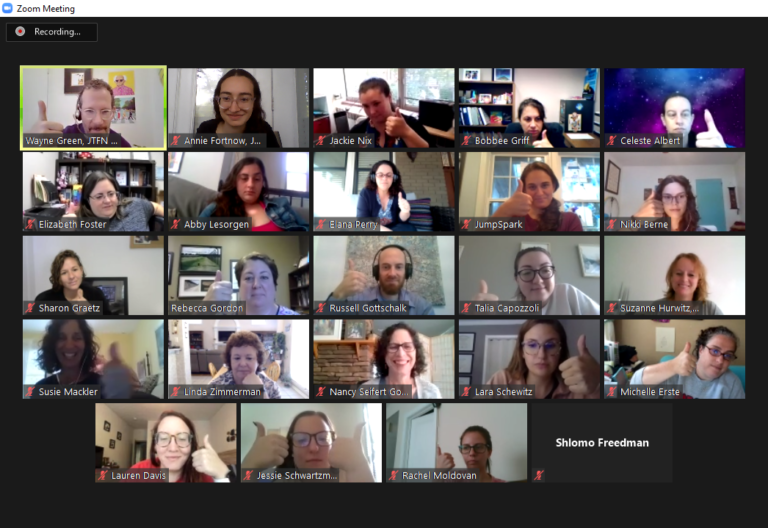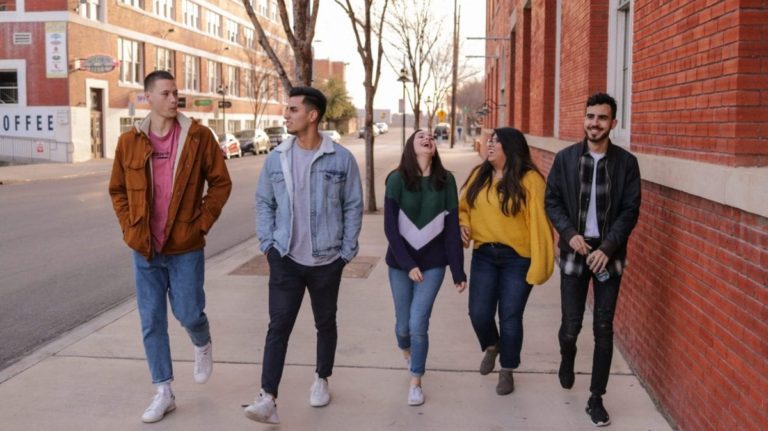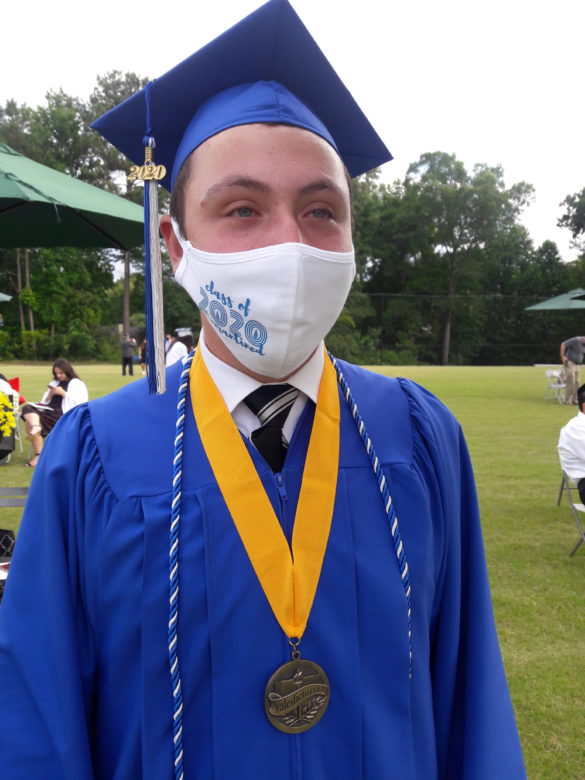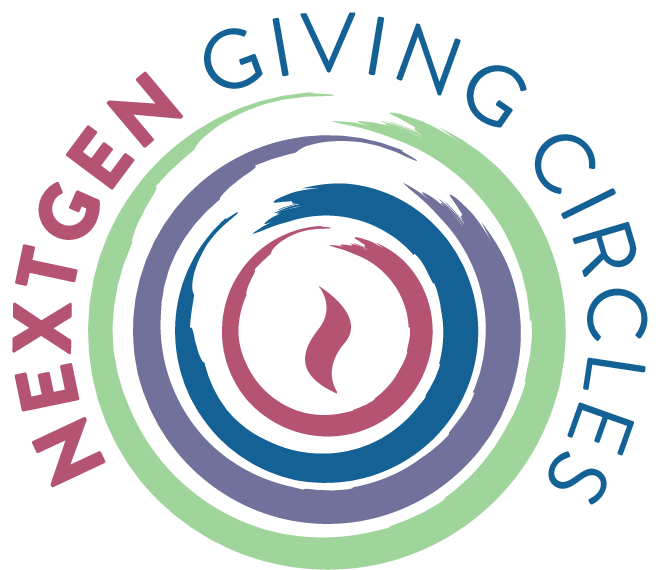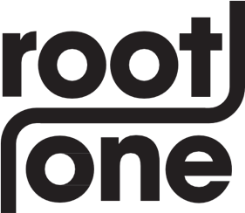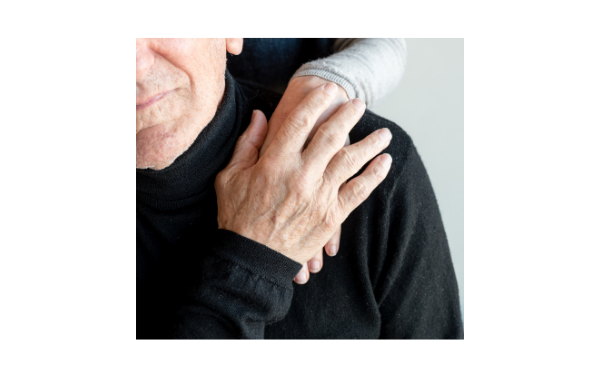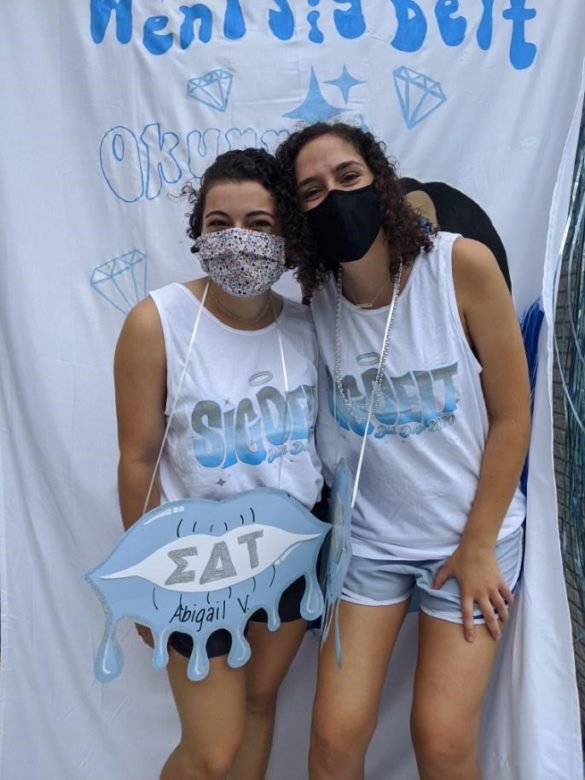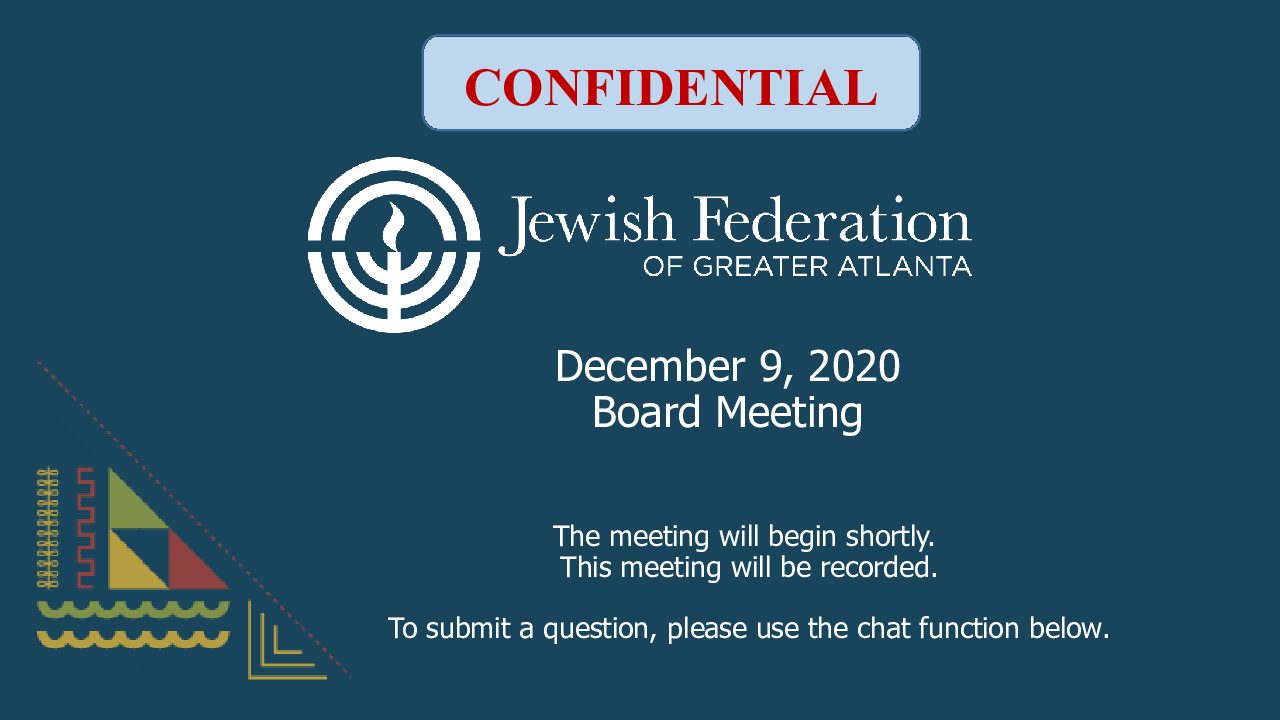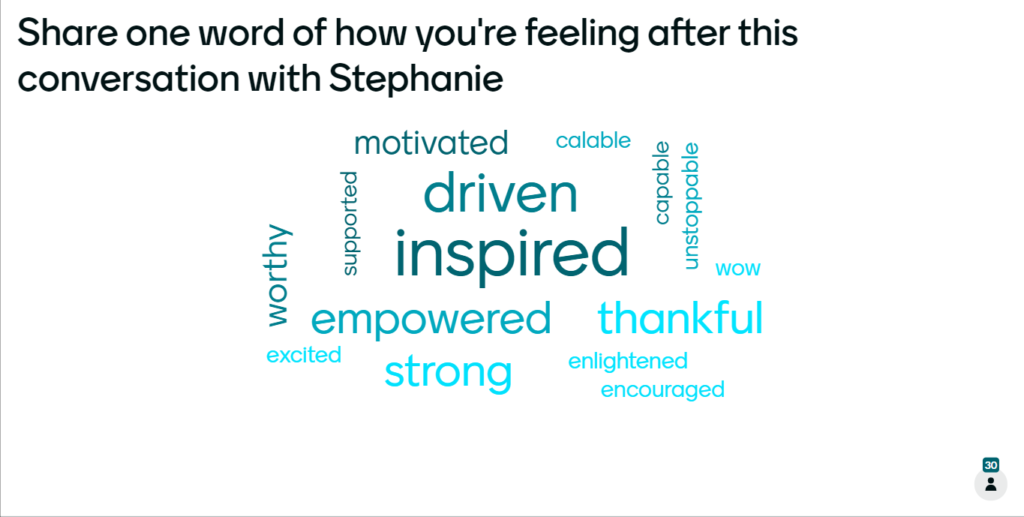
Her Campus Media is an 100% woman-owned and -operated organization that provides the opportunity for college-age women to publish their voices, is the No. 1 media portfolio for college women, and works to serve and empower young women. The Founder, Stephanie Kaplan Lewis, recently spoke to JumpSpark’s Strong Women Fellowship, pointing out major lessons that she had learned from her experience starting a successful business.
Lewis gave useful insights meant to guide any young woman who will one day start a business. Her tips include: follow your passions, build a killer team, pump out a business plan, put the pressure on, and spend hardly any money.
After her initial presentation, Lewis paused for questions, which gave Fellows an opportunity to ask about her experience or ask for guidance about their own projects and aspirations. For instance, Ariella Ayenesazan, a 9th grader at Peachtree Ridge High School, is following her passion through her own mask business and asked intriguing questions on how to grow her business on different platforms like Lewis did.
Next, Lewis led the Fellows in an exercise where the group discussed Impostor Syndrome and finding one’s purpose through questions like “what drives you?” and fill-in-the-blanks like “Sometimes I worry that I’m not as ___ everyone thinks I am.” Lewis was vulnerable with the group by sharing times when she doubts herself and opened the floor to those who wanted to share their thoughts, reactions, and feelings.
Lewis began her dream while in college, where she met her colleagues as Harvard undergrads while running a student publication for women on campus. The publication’s popularity resonated with college women across the country who began asking for advice on starting something similar at their schools. She has continued on with her passion to this day.
Lewis spoke to us as a leader who represents female empowerment, inspiring future generations. The interactive event allowed us to ask questions and stay involved. She responded with impactful answers, allowing everyone to be vulnerable and share some stories of our own lives.
Finally, Fellows created a reflective word cloud that included our feelings and takeaways from the meeting, which included words like “driven,” “inspired,” “strong” and “empowered.”

Here are a few of our take-aways.
“It was great to meet a successful woman who was willing to share her expertise with us, and she even said we could reach out to her after the meeting and participate in some of the high school Her Campus media programs. I appreciated how open Lewis was in sharing times she failed so we would not repeat the same mistakes. One thing that I will take away is that if someone has enough drive and ambition, they can do whatever they put their mind to, which I think is an important message for young women and teens to hear, because it motivates them to act on their dreams.” – Amelia Heller
“Her story inspires me to create my own path in life, like maybe create my own business one day. She pulled out all the stops to make her dreams come true, which I aspire to do one day as well. Stephanie is someone we can all look up to and learn from. With hard work, anything is possible.” – Kayla Jacobs
“I learned a lot about what it takes to start a company and the struggles faced when doing so. [Lewis’] presentation was engaging and informative, and I definitely took a lot away from it, especially when we went around and challenged our ‘Imposter Syndrome’ views of ourselves.” – Alexa Freedman
I learned how she started her company with very low expenses. I also really loved the activities we did, because it showed how it is okay to show your vulnerable side.” – Ariella Ayenesazan
“It was so interesting to hear her story about how she created her magazine company. It was so inspiring.” – Miriam Raggs
“I learned that it is possible to start a company without any money. I also learned that sacrifices are necessary to be successful.” – Maya Laufer
Amelia Heller, 15, is a sophomore at The Weber School in Atlanta. She loves musical theatre and hanging out with friends. Kayla Jacobs, 17, is a senior at Pope High School who loves to hang out with her friends, volunteer and shop online.
The Strong Women Fellowship aims to empower Jewish girls and young women through activities and speakers like Lewis who educate, energize, and empower the Fellows to be passionate and successful in their pursuits.
This article was originally published on VOX ATL. Read it here.
